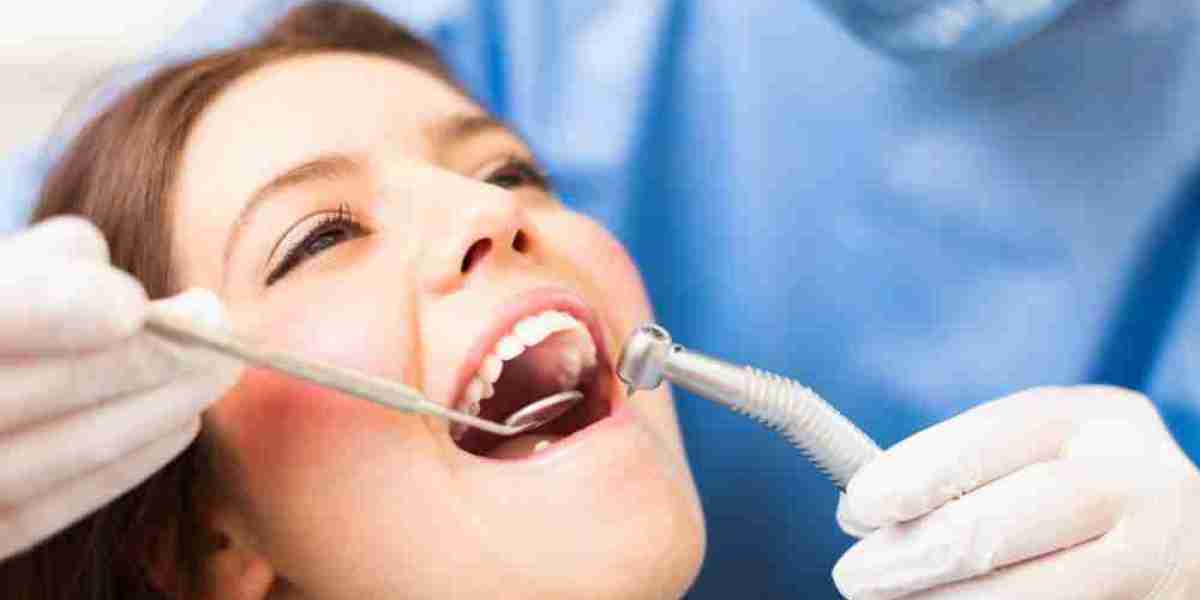When it comes to teeth cleaning, there are many myths that circulate, leading to confusion and misconceptions about the process. Whether it’s about the frequency of cleanings, the pain involved, or the effectiveness of home remedies, understanding what’s true and what’s not can help you make informed decisions about your oral health. Let’s explore some of the most common Teeth Cleaning myths and separate fact from fiction.
Teeth Cleaning is Painful:
One of the most common myths about teeth cleaning is that it’s a painful procedure. Many people avoid professional cleanings due to fear of discomfort.
Fact: Professional teeth cleaning is typically not painful, especially when performed by an experienced hygienist.
Sensitivity: While some discomfort may be felt, particularly if you have sensitive teeth or gum inflammation, it is usually temporary and subsides quickly.
Local anesthesia: In certain cases, if your gums are very sensitive or if a deeper cleaning is needed, your dentist may offer local anesthesia to ensure comfort.
While the procedure can be a bit uncomfortable for some, it is not generally painful and is an essential part of maintaining oral health.
You Only Need a Cleaning if You Have Cavities:
Another misconception is that professional cleanings are only necessary if you have cavities or are experiencing oral problems.
Fact: Regular cleanings are crucial for everyone, even if you don’t have cavities.
Plaque buildup: Cleanings remove plaque and tartar that accumulate on your teeth, which can lead to gum disease and cavities if left untreated.
Preventative care: Routine cleanings are an important preventative measure to keep your teeth and gums healthy and to avoid future dental issues.
Even if you feel like your teeth are in good shape, regular cleanings are still necessary to maintain oral hygiene and prevent problems from developing.
You Don’t Need to Clean Your Teeth if You Brush Regularly:
Some people believe that brushing their teeth thoroughly twice a day eliminates the need for professional cleanings. While brushing is essential, it’s not enough on its own.
Fact: Brushing removes surface plaque but doesn’t reach all the areas where plaque can build up, such as between teeth and below the gumline.
Tartar buildup: Over time, plaque hardens into tartar, which can only be removed by a professional cleaning.
Comprehensive cleaning: Dentists use specialized tools to thoroughly clean areas that a toothbrush can’t reach, ensuring a deeper clean.
Brushing is important, but professional cleanings are necessary to ensure all plaque and tartar are removed from your teeth.
Teeth Cleanings Cause Gum Recession:
Many people fear that professional cleanings can damage their gums and lead to gum recession, especially if the procedure involves scaling.
Fact: Teeth cleaning, when done properly by a trained professional, does not cause gum recession.
Gum health: In fact, cleanings help prevent gum disease, which is a leading cause of gum recession.
Proper technique: A skilled hygienist will gently clean the gums and teeth without causing harm. Gum recession is typically caused by other factors, such as aggressive brushing or untreated gum disease.
When performed correctly, professional cleanings are safe and beneficial for your gum health.
Cleanings Can Whiten Teeth Permanently:
Some people believe that Teeth Cleaning Treatment will provide permanent whitening results, as the process does remove surface stains.
Fact: While teeth cleaning can remove stains and brighten your smile temporarily, it does not provide permanent whitening.
Surface stains: Cleanings remove surface stains caused by food, drink, and tobacco, but deeper stains may require professional whitening treatments.
Stain prevention: Regular cleanings can help prevent new stains from building up, but maintaining a bright smile may also require at-home whitening products or treatments.
A cleaning can make your teeth look brighter, but if you want to achieve long-lasting whitening, additional treatments may be necessary.
You Should Avoid Cleanings if You Have Sensitive Teeth:
If you experience tooth sensitivity, you might think that a professional cleaning will only worsen the discomfort. However, this is a myth.
Fact: Professional cleanings can be done even for people with sensitive teeth, though additional precautions may be taken.
Desensitizing treatments: Your dentist can apply a desensitizing gel or fluoride treatment before or after the cleaning to reduce sensitivity.
Gentler techniques: Hygienists can use gentler techniques and tools to ensure that those with sensitive teeth are comfortable during the cleaning process.
People with sensitive teeth should not avoid cleanings; instead, they should inform their dentist so that the right approach can be taken to minimize discomfort.




